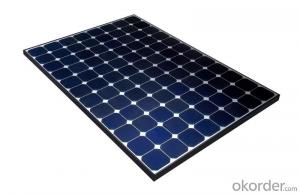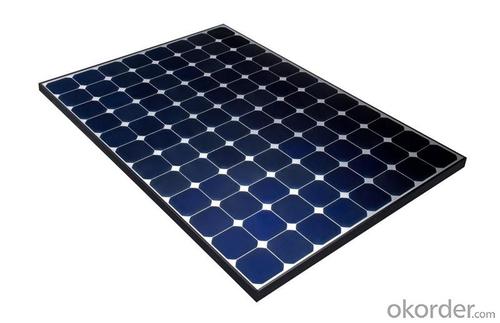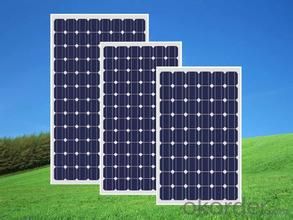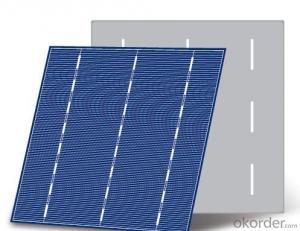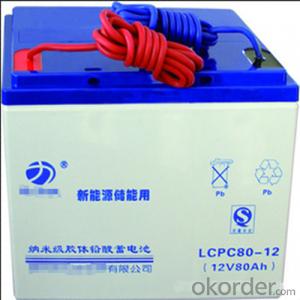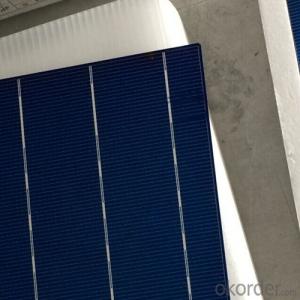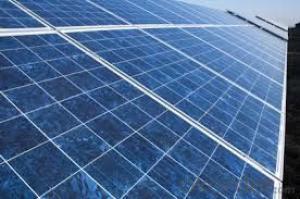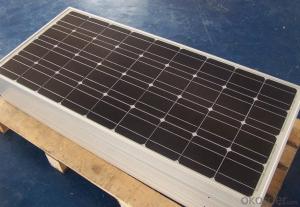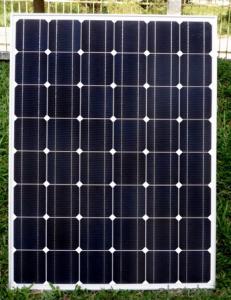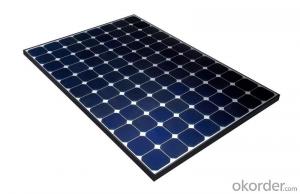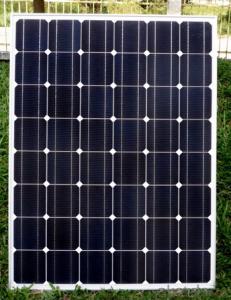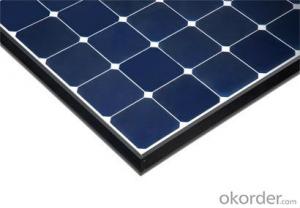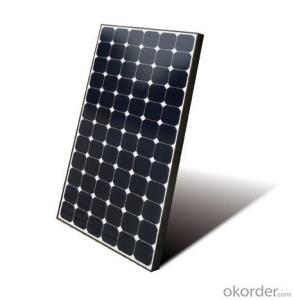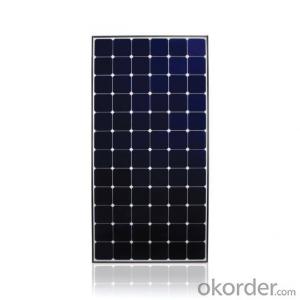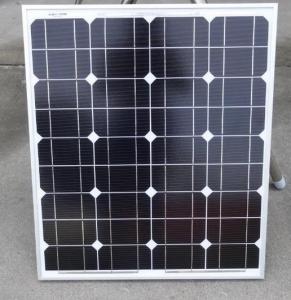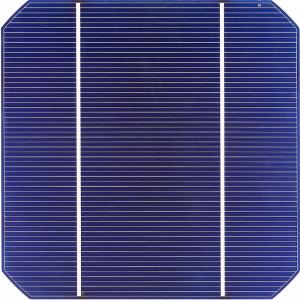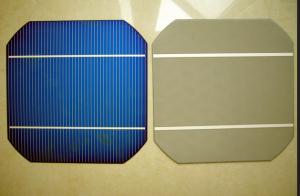Hobby Solar Cells - Poly Solar Panel 100W A Grade with 12 Years Warranty
- Loading Port:
- Shanghai
- Payment Terms:
- TT OR LC
- Min Order Qty:
- 100 watt
- Supply Capability:
- 1000 watt/month
OKorder Service Pledge
OKorder Financial Service
You Might Also Like
Specification
Poly Solar Panel 100W A Grade with 12 Years Warranty
Production description
PV systems range from small, rooftop-mounted or building-integrated systems with capacities from a few to several tens of kilowatts, to large utility-scale power stations of hundreds of megawatts. Nowadays, most PV systems are grid-connected, while off-grid or stand-alone systems only account for a small portion of the market.The International Energy Agency projected in 2014 that under its "high renewables" scenario, by 2050, solar photovoltaics and concentrated solar power would contribute about 16 and 11 percent, respectively, of the worldwide electricity consumption, and solar would be the world's largest source of electricity. Most solar installations would be in China and India.[2]
It may also use a solar tracking system to improve the system's overall performance and include an integrated battery solution, as prices for storage devices are expected to decline. Strictly speaking, a solar arrayonly encompasses the ensemble of solar panels, the visible part of the PV system, and does not include all the other hardware, often summarized as balance of system (BOS). Moreover, PV systems convert light directly into electricity and shouldn't be confused with other technologies, such as concentrated solar power or solar thermal, used for heating and cooling.
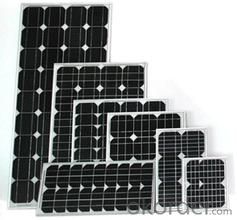
Application
Commercial
Industrial
Residential
Product Feature
12 years quality warranty 25 years performance output.
Free for less than 5 pcs sample requirement
Free to replace or repair or refund if products fail to conform to the PI requirement.
Packaging
28pcs into carton 2carton into pallets 28pallets into a 40ft container
Delivery
After 25 days for manufacturered goods as soon as we received full payment.
After 10 days for stock goods as soon as we received full payment.
- Q: How do solar cells perform in urban environments?
- Solar cells can perform well in urban environments, although their efficiency can be affected by factors such as shading from buildings and pollution. However, advancements in technology have allowed for the development of solar cells that are more resilient to these challenges, making them a viable and sustainable energy option in urban areas.
- Q: What is 3d solar cell? And anybody know any manufacturers?
- I don’t know exactly what 3d solar cell is, but I heard that it can produce 200% of the power output of conventional solar cells.
- Q: Are solar cells affected by electromagnetic interference?
- Yes, solar cells can be affected by electromagnetic interference (EMI). EMI refers to the disturbance caused by electromagnetic radiation on electronic devices, including solar cells. The interference can lead to reduced efficiency and performance of the solar cells. Shielding techniques and proper grounding can be employed to mitigate the impact of EMI on solar cells.
- Q: Can solar cells be used for powering remote weather stations?
- Yes, solar cells can be used for powering remote weather stations. Solar cells convert sunlight into electricity, providing a sustainable and reliable source of power for remote locations where access to the grid may be limited or non-existent. This makes solar cells an ideal solution for weather stations that require continuous power supply in remote areas.
- Q: Can solar cells be used for powering internet connectivity?
- Yes, solar cells can be used for powering internet connectivity. Solar cells generate electricity from sunlight, which can be used to power various devices, including routers, modems, and other networking equipment. This enables internet connectivity in remote areas where traditional power sources may not be available, making solar-powered internet an efficient and sustainable solution.
- Q: Can solar cells be used in powering irrigation systems?
- Yes, solar cells can be used to power irrigation systems. Solar panels can convert sunlight into electricity, which can then be used to power pumps and other components of an irrigation system. This is a sustainable and cost-effective solution, especially in areas with abundant sunlight, as it reduces the dependency on traditional energy sources and can provide a reliable source of power for irrigation.
- Q: Why are the poly Solar cell specifications is different from each other, they seem to have the different size of 125mm, 156mm, 152mm, is the 152mm's battery technology is higher than the other?
- The poly solar cell which is 156mm is not necessary high technology-based than the others. In fact, it's less efficient than the others.
- Q: What is the impact of solar cell installations on property values?
- Solar cell installations have been found to have a positive impact on property values. Studies have shown that homes with solar panels tend to sell for a higher price and at a faster rate compared to those without. The perceived energy savings and environmental benefits associated with solar energy make properties with solar installations more attractive to potential buyers, resulting in increased property values.
- Q: What is the impact of solar cells on reducing air pollution from power generation?
- Solar cells have a significant impact on reducing air pollution from power generation. By harnessing the sun's energy, solar cells produce clean electricity without emitting harmful pollutants like carbon dioxide and other greenhouse gases. This reduces the reliance on fossil fuels, which are major contributors to air pollution and climate change. Additionally, solar cells help to decrease the release of other harmful pollutants, such as sulfur dioxide and nitrogen oxides, which are commonly emitted during traditional power generation. Overall, the widespread adoption of solar cells can greatly contribute to improving air quality and mitigating the adverse effects of power generation on the environment.
- Q: Can solar cells generate electricity at night?
- No, solar cells cannot generate electricity at night as they rely on sunlight to produce electricity.
Send your message to us
Hobby Solar Cells - Poly Solar Panel 100W A Grade with 12 Years Warranty
- Loading Port:
- Shanghai
- Payment Terms:
- TT OR LC
- Min Order Qty:
- 100 watt
- Supply Capability:
- 1000 watt/month
OKorder Service Pledge
OKorder Financial Service
Similar products
Hot products
Hot Searches
Related keywords
